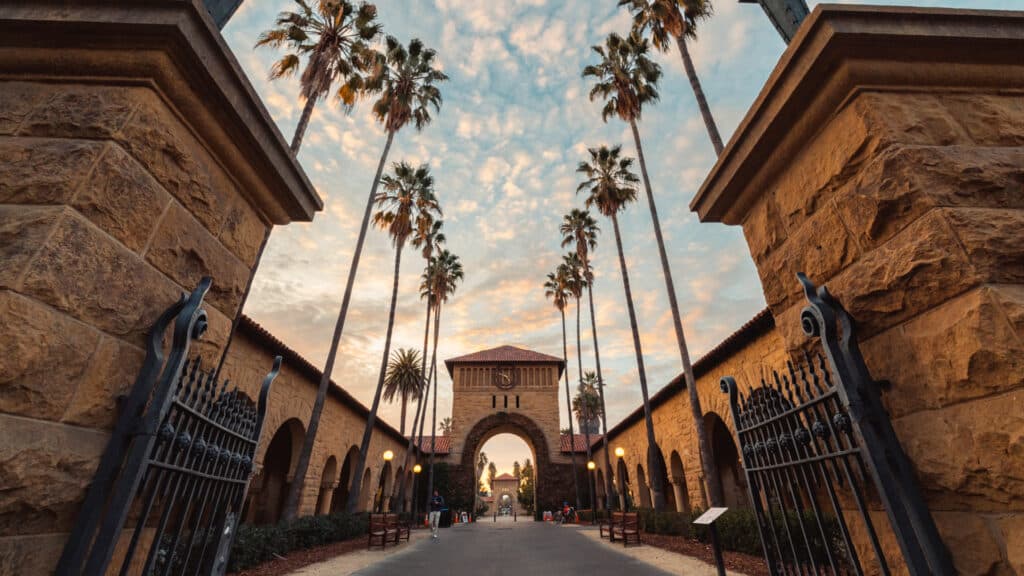Stanford presents new business case on Freedom Holding Corp. of Timur Turlov

A new case study titled «Freedom Holding: Building an Ecosystem as a Path to Scale» has been released at the Stanford Graduate School of Business. Designed for MBA students, the case study reviews Freedom’s strategy, business model, management decisions, listing on NASDAQ, internal transformation, IT product launches and the development of its corporate ecosystem.
According to Timur Turlov, CEO and majority shareholder of Freedom Holding Corp., the FRHC business case at Stanford is vivid confirmation that ideas born outside global financial capitals can also be relevant on the international stage. It is entirely possible to build a successful and unique fintech group not only in London or New York, but also in Almaty and Astana. The key is consistency and a systematic approach — avoiding imitation and firmly adhering to one’s own path.
«At the time we launched our business, everything was different. We had no large investors, no recognition and no international support. We started with basic tools and minimal capital, following an idea that might have seemed too good to be true for many. We’ve come a long way — from a local broker to a full-fledged digital ecosystem with branch offices in two dozen countries, and our own infrastructure and products that didn’t exist before we launched them. This path wasn’t linear — there were mistakes, conflicts and moments of rethinking. But that’s what real business is about: real solutions and real consequences,» Turlov wrote on Instagram.
He also believes it’s no coincidence that S&P Global Ratings recently revised its outlook on Freedom Finance JSC, Freedom Finance Global PLC, Freedom Finance Europe Ltd and Freedom Bank Kazakhstan JSC from «stable» to «positive,» while confirming their long-term and short-term ratings at «B+/B.» This reflects the company’s strengthened risk management and compliance systems. On a national scale, the ratings of Freedom Finance JSC and Freedom Bank Kazakhstan JSC were raised from «kzBBB» to «kzBBB+.»
«Our path is analyzed as a case study at Stanford. This says a lot not only about Freedom, but also about the capabilities of our country,» he said.
What the Freedom Holding Corp. business case is about
The beginning of the path
Timur Turlov was born in 1987, showing an interest in finance and trading from early on. He began his career working in the brokerage division of a bank, where he helped develop trading infrastructure for American exchanges. This experience inspired him to found Freedom Finance in 2008, aiming to provide residents of Central Asia and Eastern Europe with access to global investment opportunities. Despite weak financial infrastructure and a lack of clear regulations, the 21-year-old Turlov made a bold move, driven by a vision to give people the freedom to trade in global markets.
Financial literacy and Tradernet
From the beginning, Freedom Finance offered investors in Central Asia and Eastern Europe access to international stock markets. To scale the business, Turlov emphasized diversification and education, launching the Freedom Academy platform with courses on financial literacy.
The main challenges were investor mistrust in foreign stocks and underdeveloped legislation, which hampered online trading. To help users manage their investments and access educational content, Turlov developed the Tradernet platform. At the same time, international trading was conducted through an offshore company he established to legally navigate Kazakhstan’s regulatory environment.
People’s IPO
Freedom Finance enabled clients to trade stocks in tenge (Kazakhstan’s national currency) at any time. Share settlements occurred on the same day, and funds were stored in the Central Securities Depository of Kazakhstan. Additionally, foreign share transactions on KASE were exempt from income tax, reducing costs and increasing profits. The company aimed to develop Kazakhstan’s stock market and attract new investors.
In 2011, there were fewer than 4,000 accounts on KASE. By 2022, that number had grown to more than 618,000 — largely due to Freedom Finance. In 2014, the company promoted the «people’s IPO» of KEGOC, opening branches in 11 cities and eliminating commissions, which attracted 42,000 new investors. Freedom also facilitated the listing of Bank of America shares on KASE, making transactions in tenge more accessible.
By the 2010s, Freedom had expanded into more than 20 countries, realizing that scale was necessary to remain competitive. Recognizing the underdeveloped financial infrastructure in Kazakhstan, Turlov aimed to create a full digital ecosystem. In 2019, Freedom went public on Nasdaq, becoming one of the first Central Asian companies listed on the exchange.
In 2023, Freedom exited the Russian market, selling its assets there due to geopolitical tensions.
Development of an ecosystem
To build its ecosystem, Freedom Holding Corp. acquired promising companies to attract talented teams and broaden its customer base through cross-selling. Turlov emphasized that an ecosystem is essential for survival. «Without integration and convenient services, customers will go to competitors,» he noted.
The first step was to establish a bank — the core of financial services — to reduce customer acquisition costs and improve conversion. Freedom acquired companies with low levels of digitalization: Freedom Life, Freedom Insurance and Freedom Bank. By digitalizing auto insurance, the company began issuing insurance certificates in 15 seconds and processing claims in 15 minutes, increasing its market share to 40% by 2025.
Freedom Bank also digitalized mortgages, car loans and business loans, cutting approval times to 4 hours 34 minutes, 53 minutes and 7 minutes, respectively. By 2025, the bank had captured 58% of the mortgage market and 41.3% of the car loan market, ranking 8th among Kazakhstani banks.
The Freedom ecosystem further expanded through acquisitions such as Ticketon.kz (1.7 million tickets per year), Arbuz.kz (727,000 orders), and Aviata (4.4 million tickets). These acquisitions helped attract customers to related services and strengthened the company’s market position.
Until 2024, 99% of transactions on these platforms were processed through external banking systems, as they had not yet been integrated into Freedom’s ecosystem. In late 2024, the company began merging these services into the Freedom mobile app, encouraging users to switch to Freedom cards and make in-app transactions. As a result, 46% of payments were processed through Freedom’s infrastructure, and declining sales at Arbuz (-8% annually) stabilized thanks to this integration.
In April 2024, Freedom Bank launched the SuperApp, a mobile application that brings together a wide range of services under one platform. The SuperApp combines financial services (cards, loans, deposits) with lifestyle offerings (ticketing, bookings, etc.). To enhance appeal, the app features a user-friendly interface and a unified loyalty program called Freedom Currency, where cashback is linked to Freedom Holding Corp. shares. These innovations led to a 51% monthly increase in the user base.
Market competition
Under Timur Turlov’s leadership, Freedom Finance built a robust brokerage service and digital investment platform, securing a key position in the market. However, two strong competitors remain: Kaspi and Halyk.
Halyk Bank has held the top position in Kazakhstan in terms of assets for over four years, reaching $28.6 billion at the start of 2024 (+7.79% year-on-year). Kaspi Bank ranked second, followed by Bank CenterCredit with $13.2 billion and $10.1 billion in assets, respectively. Kazakhstan’s banking sector remains highly concentrated: the three largest banks control 52.3% of total assets. Kaspi previously dominated the payments market with an 86% share, but Freedom’s entry helped reduce this to 72% over the past 18 months.
Stanford Graduate School of Business
The Stanford Graduate School of Business (Stanford GSB) is one of the world’s top business schools, located at Stanford University in Palo Alto, California, in the heart of Silicon Valley. It was founded in 1925 through the initiative of Stanford alumnus and 31st U.S. President Herbert Hoover, aiming to create an alternative to East Coast business schools and prevent brain drain from the western U.S.
The school ranks first in the U.S., according to U.S. News & World Report (2013), and first globally according to the Financial Times (2012), while Forbes ranked it second in the world (2011). In 2020, its MBA program ranked third globally in the Financial Times rankings. Prominent alumni of the school include Phil Knight (founder of Nike), Mary Barra (CEO of General Motors), Sergey Brin (co-founder of Google), Mukesh Ambani (Reliance) and Vladimir Verkhoshinsky (CEO of Alfa Bank).

